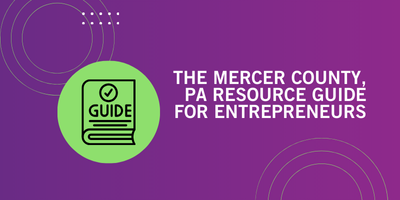The Importance of Contracts in Your Business
If you're an entrepreneur, contracts are not just pieces of paper but the foundation of your business relationships, protections, and future growth. Whether you're just launching your startup or scaling a mature business, understanding and effectively using contracts is vital to your long-term success.
Contracts are legally binding agreements that spell out your rights, responsibilities, and expectations with clients, vendors, employees, and partners. They are tools of clarity and control that help prevent misunderstandings, manage risk, solidify trust and ensure smooth operations.
They provide:
- Legal Protection – In the event of a breach, contracts give you enforceable rights.
- Risk Mitigation – Through clauses like indemnification and liability limitations.
- Operational Clarity – Clearly stated deliverables, timelines, and payment terms.
- Relationship Management – Defined expectations that strengthen partnerships.
Don’t assume shaking hands on a deal is enough. Verbal agreements can be enforceable but are notoriously difficult to prove. Even a basic follow-up email summarizing terms you’ve discussed is better than relying on memory or assumptions.
Essential Elements of a Valid Contract
To be legally enforceable, a contract generally needs five key elements:
- Offer and Acceptance – One party proposes, the other agrees.
- Consideration – Something of value exchanged by both parties (e.g., money for services).
- Intent to Create Legal Relations – Both parties understand they are entering a binding agreement.
- Capacity and Consent – All parties must be adults of sound mind, acting voluntarily.
- Legal Purpose – The agreement must not involve illegal activity.
If all five are met, your contract stands on firm ground.
Templates vs. Custom Contracts
Pre-written contract templates can save time and money. They’re often used for standard NDAs or basic service agreements. But they are also inherently generic and might not offer the protection your unique business needs.
Templates work well when:
- You’re using them for low-risk, repeatable transactions.
- You know how to adapt them for your specific needs.
- You’re supplementing them with at least some legal review.
However, custom contracts are worth the investment when:
- The deal is high-value or high-risk.
- You’re working with intellectual property.
- The contract will be reused frequently.
- You're entering complex arrangements like joint ventures, licensing, or equity deals.
Pitfalls to Avoid
Avoid these common mistakes with contracts:
- Ambiguous Language: Avoid vague terms like "reasonable time" or undefined jargon. Spell everything out clearly.
- Skipping the Read-Through: Never sign something you haven’t fully read. Even boilerplate language can contain clauses that aren’t in your favor.
- Relying on Verbal Agreements
- Ignoring Renewal or Termination Clauses: Know when your contracts expire, auto-renew, or require notice. Calendar these dates to avoid being caught off guard.
Contracts aren’t just legal tools—they’re business tools. They don’t replace your judgment as an entrepreneur; they reinforce it. A solid contract reflects a solid business decision. It helps you align expectations, enforce boundaries, and protect what you’ve built.
Understanding contracts doesn’t mean you need to be a lawyer. It means you take your business seriously and are ready to protect it. If you only take one thing away: contracts are not red tape—they are your business’s armor.
This article is for educational and informational purposes only and none of the authors, presenters or sponsors are rendering accounting, business, financial, investment, legal, tax or other professional advice or services. This is not a substitute for professional advice and should not be used as a basis for any decision or action that may affect your business, legal or tax situation. Before making any decision or taking any action, you should consult qualified professional advisors. This organization and presenter are not responsible for any loss sustained by any person who relies on this information.
Heading
The Importance of Contracts in Your Business
If you're an entrepreneur, contracts are not just pieces of paper but the foundation of your business relationships, protections, and future growth. Whether you're just launching your startup or scaling a mature business, understanding and effectively using contracts is vital to your long-term success.
Contracts are legally binding agreements that spell out your rights, responsibilities, and expectations with clients, vendors, employees, and partners. They are tools of clarity and control that help prevent misunderstandings, manage risk, solidify trust and ensure smooth operations.
They provide:
- Legal Protection – In the event of a breach, contracts give you enforceable rights.
- Risk Mitigation – Through clauses like indemnification and liability limitations.
- Operational Clarity – Clearly stated deliverables, timelines, and payment terms.
- Relationship Management – Defined expectations that strengthen partnerships.
Don’t assume shaking hands on a deal is enough. Verbal agreements can be enforceable but are notoriously difficult to prove. Even a basic follow-up email summarizing terms you’ve discussed is better than relying on memory or assumptions.
Essential Elements of a Valid Contract
To be legally enforceable, a contract generally needs five key elements:
- Offer and Acceptance – One party proposes, the other agrees.
- Consideration – Something of value exchanged by both parties (e.g., money for services).
- Intent to Create Legal Relations – Both parties understand they are entering a binding agreement.
- Capacity and Consent – All parties must be adults of sound mind, acting voluntarily.
- Legal Purpose – The agreement must not involve illegal activity.
If all five are met, your contract stands on firm ground.
Templates vs. Custom Contracts
Pre-written contract templates can save time and money. They’re often used for standard NDAs or basic service agreements. But they are also inherently generic and might not offer the protection your unique business needs.
Templates work well when:
- You’re using them for low-risk, repeatable transactions.
- You know how to adapt them for your specific needs.
- You’re supplementing them with at least some legal review.
However, custom contracts are worth the investment when:
- The deal is high-value or high-risk.
- You’re working with intellectual property.
- The contract will be reused frequently.
- You're entering complex arrangements like joint ventures, licensing, or equity deals.
Pitfalls to Avoid
Avoid these common mistakes with contracts:
- Ambiguous Language: Avoid vague terms like "reasonable time" or undefined jargon. Spell everything out clearly.
- Skipping the Read-Through: Never sign something you haven’t fully read. Even boilerplate language can contain clauses that aren’t in your favor.
- Relying on Verbal Agreements
- Ignoring Renewal or Termination Clauses: Know when your contracts expire, auto-renew, or require notice. Calendar these dates to avoid being caught off guard.
Contracts aren’t just legal tools—they’re business tools. They don’t replace your judgment as an entrepreneur; they reinforce it. A solid contract reflects a solid business decision. It helps you align expectations, enforce boundaries, and protect what you’ve built.
Understanding contracts doesn’t mean you need to be a lawyer. It means you take your business seriously and are ready to protect it. If you only take one thing away: contracts are not red tape—they are your business’s armor.
This article is for educational and informational purposes only and none of the authors, presenters or sponsors are rendering accounting, business, financial, investment, legal, tax or other professional advice or services. This is not a substitute for professional advice and should not be used as a basis for any decision or action that may affect your business, legal or tax situation. Before making any decision or taking any action, you should consult qualified professional advisors. This organization and presenter are not responsible for any loss sustained by any person who relies on this information.
Heading
We bring owners together to bond, learn and get real about what it takes to build a thriving small business.
Join hundreds of owners who want to share their experiences, learn from each other and get better results from the businesses they run.
-svg.webp)
Additional Resources
View more resources from Entrepreneurs Forever.













